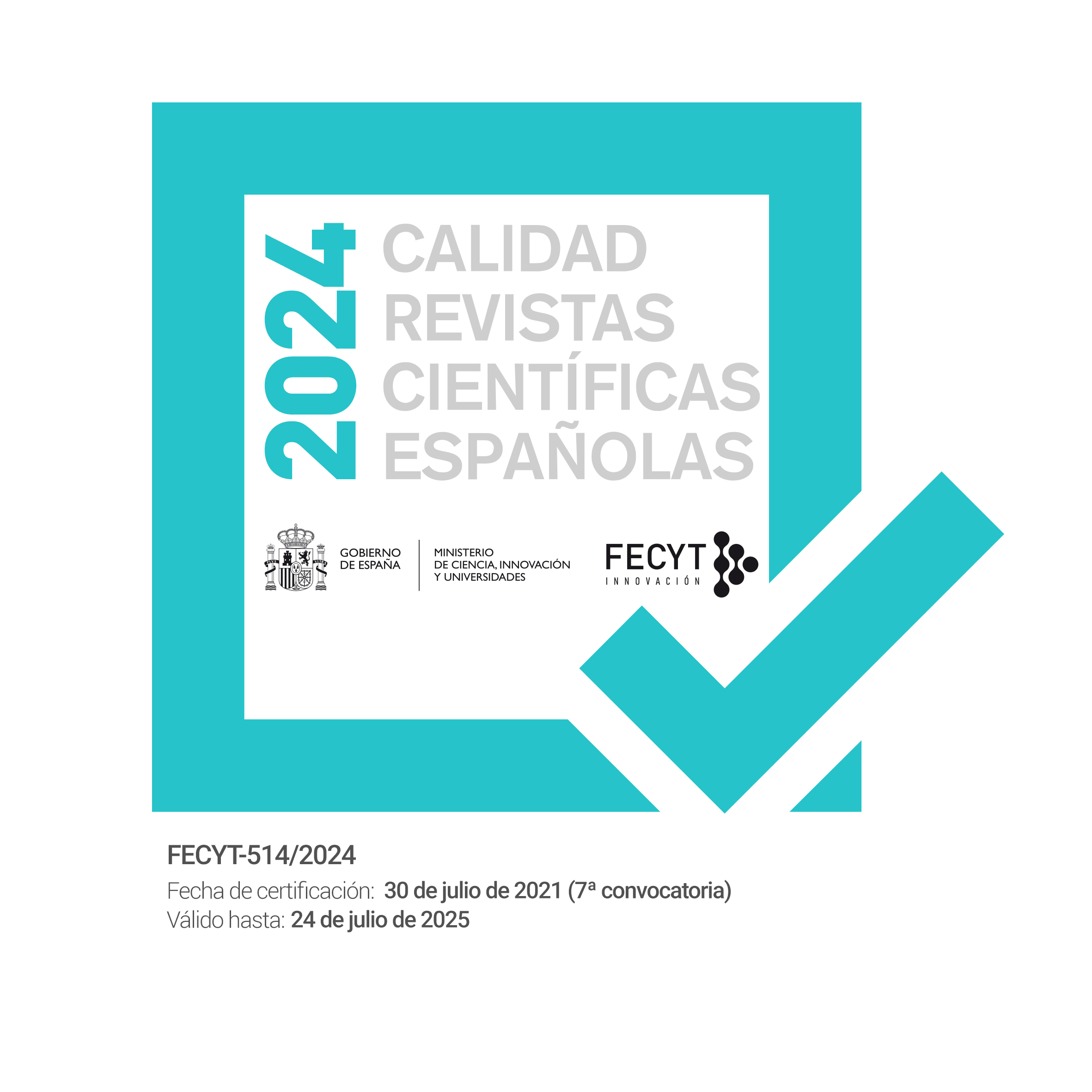Joy Harjo's Ethical Modes of Behavior Toward the Land
DOI:
https://doi.org/10.12795/REN.2022.i26.09Keywords:
Joy Harjo; poetry; Native American; environment; place.Abstract
Joy Harjo’s poetry may be used to reflect on how various cultural traditions experience the concept of “We” with regards to other species and the environment, for which creative forms of responsibility should be articulated. Today, humans and non-humans alike face numerous and significant challenges and threats that are becoming increasingly apparent in the specific context of climate change and environmental degradation. Harjo’s work raises concerns about the impact that current global crises are having on the environment and our relationship to places, and consequently, our sense of belonging. This article discusses the relevance of some of Harjo’s poetry for increasing consciousness about the earth’s vulnerability and the need for environmental justice, which may be found in small but fundamental acts of caring.
Downloads
References
ADAMSON, Joni. American Indian Literature, Environmental Justice, and Ecocriticism: The Middle Place. U of Arizona P, 2001.
ANCALAO, Liliana. “The Silenced Language.” World Literature Today, 2018. www.worldliteraturetoday.org/2018/january/silenced-language-liliana-ancalao. Accessed 22 Aug. 2021 and 28 Sep. 2021.
ARANDA, Kay, et al. “The Resilient Subject: Exploring Subjectivity, Identity and the Body in Narratives of Resilience.” Health, vol. 16, no. 5, 2012, pp. 548-563. www.jstor.org/stable/26650201.
BHABHA, Homi. “Introduction: Narrating the Nation,” Nation and Narration, edited by Homi Bhabha, Routledge, 1990, pp. 1-7.
BRYSON, J. Scott. “Finding the Way Back: Place and Space in the Ecological Poetry of Joy Harjo.” MELUS, vol. 27, no 3, 2002, pp. 169-196.
BUTLER, Judith, et al. Vulnerability in Resistance. Duke UP, 2016.
CARSON, Rachel. Silent Spring. Penguin, 2000.
CHEN, Mel Y. Animacies. Biopolitics, Racial Mattering, and Queer Affect. Duke U Press, 2012.
COULTHARD, Glen. Red Skin, White Masks. Rejecting the Colonial Politics of Recognition. U of Minnesota P, 2014.
FREIRE, Paulo. La educación como práctica de la libertad. Siglo XXI, 1983.
FUMAGALLI, Andrea. Bioeconomía y capitalismo cognitivo. Hacia un nuevo paradigma de acumulación, translated by Antonio Antón Hernández, Joan Miquel Gual Vergaras and Emmanuel Rodríguez López, Traficantes de sueños, 2007.
GAARD, Greta. “Foreword.” Literature and Ecofeminism. Intersectional and International Voices, edited by Vacoch, Douglas A. and Sam Mickey, Routledge, 2018.
GARCÍA NAVARRO,Carmen. “Joy Harjo’s Poetics of Memory and Resilience.” Atlantis, vol. 41, no. 1, 2019, pp. 51-68, doi: 10.28914/Atlantis-2019-41.1.03.
GORNICK, Vivian. The Situation and the Story: The Art of Personal Narrative. Farrar, Straus and Giroux, 2001.
HARAWAY, Donna. Staying with the Trouble. Making Kin in the Chthulucene. Duke U Press, 2016.
HARJO, Joy. An American Sunrise. Norton, 2019.
---.Conflict Resolutions for Holy Beings. Norton, 2015.
---.Crazy Brave. A Memoir. Norton, 2013.
---.How We Became Human. New and Selected Poems: 1975-2001. Norton, 2004.
---.”Inaugural Reading as U.S. Poet Laureate.” Library of Congress National Book Festival. Live, 20 Sep. 2019. https://www.youtube.com/c/loc/search?query=Joy%20Harjo%27s%20Inaugural%20Lecture. Accessed 22 August 2021.
---.”In conversation with Anis Mojgani.” Podcast, 20 April 2020a. https://literary-arts.org/archive/joy-harjo-in-conversation-with-anis-mojgani-rebroadcast/Accessed 3 March 2022.
---.”Linda Hogan and Joy Harjo Interview.” Cutthroat. A Journal of the Arts, vol. 18, no. 1, 2015, pp. 91-102.
---.Wings of Night Sky, Wings of Morning Light. Wesleyan U Press, 2019.
HARJO, Joy, Leanne Howe and Jennifer Elise Foerster, editors. When the Light of the World was Subdued, Our Songs Came Through. A Norton Anthology of Native Nations Poetry. Norton, 2020.
HEISE, Ursula K. Sense of Place and Sense of Planet: The Environmental Imagination of the Global. Oxford U Press, 2008.
HERMAN, Judith. Trauma and Recovery. Basic, 1992.
HOGAN, Linda. The Book of Medicines. Coffee House Press, 1993.
IBARROLA-ARMENDARIZ, Aitor. Revista de Estudios Norteamericanos, vol. 23, 2019, pp. 209-230. DOI: http://dx.doi.org/10.12795/REN.2019.i23.010. Accessed 25 Jan. 2022.
JAMIE, Kathleen. “Second nature.” Kathleen Jamie, 13 Oct. 2020. https://kathleenjamie.com/other-projects. Accessed 2 March 2022.
JARVIS, Andrew. “Review of An American Sunrise. Poems.” New York Journal of Books. https://www.nyjournalofbooks.com/book-review/american-sunrise-poems Accessed 21 Sept. 2021.
KIRKSEY, Eben. “Hope: Living Lexicon for the Environmental Humanities.” Environmental Humanities, vol. 5, 2014, pp. 295-300.
LEWIS, Simon L. and Mark A. Maslin. “Defining the Anthropocene.” Nature, no. 519, 2015, pp. 171-180. doi: 10.1038/nature14258.
MITHLO, Nancy Marie. “‘A Real Feminine Journey’: Locating Indigenous Feminisms in the Arts.” Meridians, vol. 9, no. 2, 2009, pp. 1-30. JSTOR https://www.jstor.org/stable/40338781.
MURPHY, Patrick D. “Introduction.” Literature and Ecofeminism. Intersectional and International Voices, edited by Douglas A. Vacoch and Sam Mickey. Routledge, 2018.
OSTRIKER, Alicia. Poets.org. (n. dated). https://www.poets.org. Accessed 6 Feb. 2022.
PAUL, Susmita. “Memory: The ‘Spiral’ in the Poetry of Joy Harjo.” Rupkatha Journal of Interdisciplinary Studies in Humanities, vol. 3, no. 2, 2011, pp. 330-338. https://rupkatha.com/poetry-of-joy-harjo/ Accessed 19 Sep. 2021.
PAULS, Elizabeth Prine. “Trial of Tears. United States History.” (n. dated). https://www.britannica.com/event/Trail-of-Tears Accessed 25 Jan. 2022.
RAMIREZ, Reyna. “Race, Tribal Nation, and Gender. A Native Feminist Approach to Belonging.” Meridians: Feminism, Race, Transnationalism, vol. 7, no. 2, 2007, pp. 22-40. JSTOR: https://www.jstor.org/stable/40314242.
RICH, Adrienne. Buceando en el naufragio. Poemas 1971-1972./Diving into the Wreck. Poems 1971-1972. Bilingual Edition, translated by Patricia Gonzalo de Jesús. Sexto Piso, 2021.
RIECHMANN, Jorge. Ars Nesciendi. Amargord, 2018. Madrid, p. 9.
RYAN, John Charles. Plants in Contemporary Poetry. Ecocriticism and the Botanical Imagination. Routledge, 2018.
SACHS, Jeffrey. La era del desarrollo sostenible. Planeta, 2014.
SANDILAND, Kate. “Ecofeminism and Its Discontents: Notes toward a Politics of Diversity.” Trumpeter, vol. 8, no. 2, 1991, pp. 90-96.
SCIGAJ, Leonard. Sustainable Poetry: Four American Ecopoets. U Press of Kentucky, 1999.
TRONTO, Joan. Caring Democracy: Markets, Equality, and Justice. New York U Press, 2013.
UNGAR, Michael. “Putting Resilience into Action. Five Principles for Intervention.” In Resilience in Action. Working with Youth across Cultures and Contexts, edited by Linda Liebenberg and Michael Ungar, U of Toronto Press, 2008.
VINCE, Gaia. Adventures in the Anthropocene. Penguin, 2019.
WILLIAMS, Susan M., and Joy Harjo. “American Indian Feminism.” In The Reader’s Companion to U.S. Women’s History, edited by Wilma Mankiller et al. Houghton Mifflin Company, 1998.















